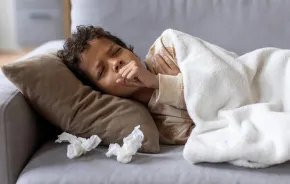 In this post, and posts to come, I’m going to talk about safety measures that teens can take to try and lower their risk of sexual assault.
In this post, and posts to come, I’m going to talk about safety measures that teens can take to try and lower their risk of sexual assault.
However, that comes with two important caveats. The first is that, unfortunately, there is nothing a teen can do to keep themselves 100% safe from sexual assault. The second is that if a sexual assault occurs, the blame is 100% on the perpetrator. It does not matter how the victim was acting, or what risks they took, or whether or not they showed good judgment in the situations leading up to the assault; a person who sexually assaults another person is the only one who bears responsibility for that assault.
The tips I am giving in the next few posts are ways to possibly lower risk, but someone who chooses to ignore all of them should never be blamed if they are attacked. Sometimes I wonder if we spend time teaching our teens to take safety measures and then forget to teach our teens to not sexually assault people. Like I mentioned in my last post, take the time to discuss with your teen, no matter what their gender, what is and is not acceptable.
Again, I’m not implying your teen is the type of person to victimize someone, but they might be able to speak up to help someone else. If one teen had chosen to call the police when they saw what was happening during the Steubenville incident, the assaults — or at least some of them — might never have happened.
Let’s discuss ways to talk to your teen about increasing their safety, and possibly decreasing their risk of being seen as an “easy target” (again, there are unfortunately no guarantees). And we’ll start by talking about drinking and drugs.
When someone is intoxicated or under the influence of drugs, their judgment and decision-making capacity is lowered and sometimes nonexistent. This means that they may not be able to assess risk like somebody sober. They may decide to spend time with someone who, were they sober, their gut instinct would warn them away from. They may be unable to see the danger of a situation that would normally set off alarm bells.
If the effects of alcohol or drugs are visible, someone who is seeking a vulnerable person may be drawn to someone drunk or high. Or, if their impulse control is lowered, they may act aggressively toward somebody else.
If your teen decides to drink — hopefully once they are over 21, but the majority of teens do experiment with alcohol before then — they can avoid drinking to the point of severe impairment, especially when in large groups (keeping in mind, however, that most sexual assaults involve someone known to the victim).
When I was in college, we usually had a friend who agreed to be the “lookout” for an evening of parties, someone who would avoid intoxication and make sure that nobody was taken advantage of, and that everyone got back to their dorm room safely. Groups of friends can rotate this responsibility.
This is obviously not a sure thing — the designated lookout can be drunk him or herself, they can assume one of their charges is having a good time when really they are quite incapacitated, etc. But it’s never a bad idea for teens to look out for each other in party or group settings, and to speak up if they are concerned that someone is being taken advantage of.
Sometimes teens can become incapacitated without having the chance to consider whether or not they want to drink or take drugs. Another important thing for teens to consider is the possibility that someone might slip a drug into their drink to render them less able to respond to or remember incidents.
When possible, teens should get their own drinks, or at least watch them being poured from a previously unopened container, and they should never leave their drink unattended. You and your teen can find out more about “date-rape drugs” and ways to avoid them here.
There are, of course, many other risks to drinking and drugs, many of which are discussed in this post, “Drug Use Among Teens.” But encourage your teen to think about drinking and drugs in terms of sexual assault as well. This may help them increase their own safety, or be able to help a friend when they need it most.
This is Part 2 in a series about teens and sexual assault.
Part 1: The Steubenville Incident
 Teens never cease to amaze me with their strength, creativity, and new perspectives! Throughout my career, I’ve enjoyed helping teens and their parents tackle health concerns and navigate social issues. Nursing is my second career; my first degree was in biology from Carleton College, and a few years later I went to the University of Virginia for their Second Degree Nursing Program. Recently I began a graduate program at the University of Washington.
Teens never cease to amaze me with their strength, creativity, and new perspectives! Throughout my career, I’ve enjoyed helping teens and their parents tackle health concerns and navigate social issues. Nursing is my second career; my first degree was in biology from Carleton College, and a few years later I went to the University of Virginia for their Second Degree Nursing Program. Recently I began a graduate program at the University of Washington.












